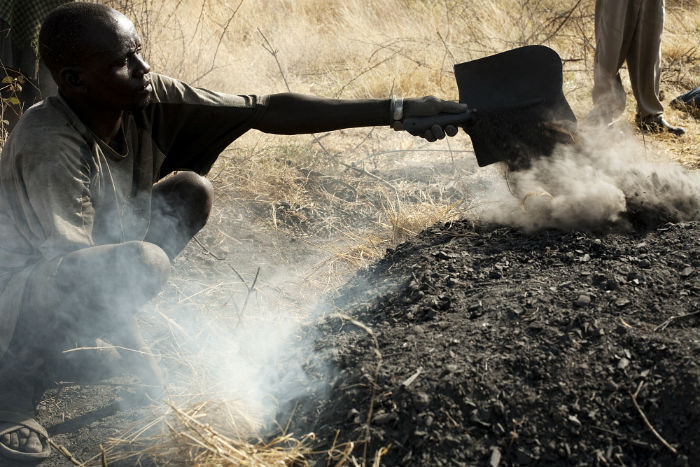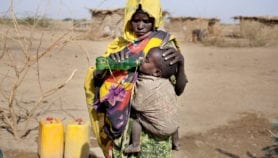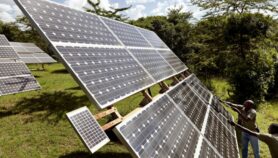By: Baraka Rateng’
Send to a friend
The details you provide on this page will not be used to send unsolicited email, and will not be sold to a 3rd party. See privacy policy.
The Climate and Clean Air Coalition (CCAC) is a global effort that unites governments, civil society organisations and the private sector in their commitments to improving air quality and protecting the environment from the impact of climate change.
The CCAC aims to reduce short-lived climate pollutants across sectors. Short-lived climate pollutants are a set of gases and particles with relatively short atmospheric lifetimes, from a few days to approximately 10 years, but have significant warming impacts on the climate.
These include black carbon, methane and some hydrofluorocarbons that are a group of chemicals manufactured for use in refrigeration, insulation foam, and aerosols. Major cuts in their emissions will yield much faster reductions in planetary warming.
The coalition also acts as a catalyst to create, implement and share immediate solutions addressing climate change with the aim of improving people’s lives rapidly and ensuring sustainable development for future generations.
To find out more about the CCAC and its efforts, SciDev.Net spoke with Alice Akinyi Kaudia, environment secretary in Kenya’s Ministry of Environment and Natural Resources, who was on 17 April elected as a co-chair of the CCAC steering committee.
What are the key objectives of the CCAC?
The key objectives of CCAC are geared towards enabling developing countries — in particular — to reduce emission of short-lived climate pollutants while improving the well-being of people and the environment. These objectives include raising awareness of short-lived climate pollutant impacts and mitigation strategies, enhancing and developing new national and regional actions, promoting and improving best practices, and showcasing successful efforts to aid understanding of impacts of short-lived climate pollutants and associated mitigation strategies.
“For Africa, my being a global co-chair means I can articulate the needs of Africa and other developing countries on programmes.”
Alice Akinyi Kaudia, The Climate and Clean Air Coalition (CCAC)
As a new co-chair of the CCAC steering committee, what does this position mean to you personally and to Sub-Saharan Africa in particular?
Personally, I am very excited about this position because all the objectives of CCAC focus on practical action that should be taken to aid adaptation to and mitigation of climate change. As you know, climate change is a common global threat to the well-being of people and sustainability of the environment. For Africa, my being a global co-chair means I can articulate the needs of Africa and other developing countries on programmes that should be developed and financed to enable these regions meet their respective commitments to the Paris agreement.
What vision do you have for the CCAC in the next two years?
During the next two years, I want to support the strengthening of all the 11 initiatives of CCAC but with a particular focus on waste, household energy, agriculture and bricks, which have direct relevance to developing countries. I will also strive to ensure increased active participation of governments and non-governmental organisations in low-and middle-income countries in activities of the coalition, but with a focus on improving the wellbeing of resource-poor communities and particularly women and the youth. In addition, I would like to see an increase in the number of partners. Currently, there are 114 partners made up of 52 governments, 17 international non-governmental organisations and 45 non-governmental organisations.
Why are climate change and unclean air of concern in Sub-Saharan Africa?
Having strong and effective climate action to ensure clean air in Africa is a necessity because of the impact of polluted air on human health and overall constrained development associated with scarcity of natural resources such as water, feed, food and forests as a result of negative impacts of climate change. Developing countries depend heavily on these natural resources for their growth and wellbeing of their populations. Without transformative action to tame climate change, our sustainability is compromised.
What do you think African countries and policymakers need to do to address the challenges of climate change and unclean air?
All African governments should have policies that support generation of science-based knowledge and innovations. Such policies should support investment in clean technology and sustainable lifestyles as guided by development paradigms. Where clean technology has to be acquired, the policy pricing model should support affordability by low-income earners.
The 2016 report of the CCAC titled Advancing actions to reduce black carbon, methane and hydrofluorocarbons: time to act! identifies efforts made worldwide to reduce short-lived climate pollutants (RSCPs). What challenges does Sub-Saharan Africa face in reducing RSCPs?
Challenges faced by African governments in reducing SLCPs such as black carbon emitted from wood fuel, for instance, include limited investment capacity in large-scale action that can create impact due to differences in environment polices and climate action strategies across the continent, limited knowledgeable and skilled human resources capacity to promote transformative clean technologies, and a fast-growing middle-class population with a high consumption tendency but without regard for environment sustainability.
“Without transformative action to tame climate change our sustainability is compromised.”
Alice Akinyi Kaudia, The Climate and Clean Air Coalition (CCAC)
What are the key successes, if any, in reducing climate pollutants in Sub-Saharan Africa?
I see the main “success” being the climate action governance structure that is emerging on both climate change negotiation and action streams. I take Kenya as an example, where climate change issues are now handled at the presidency level though the National Climate Change Council chaired by the president. The political level of engagement can support mobilisation of financial and other resources to support large-scale uptake of clean technologies.
What opportunities exist for Sub-Saharan Africa to reduce short-lived climate pollutants?
Africa has unquantifiable opportunities to reduce SLCPs. I say this because from a business model approach, every climate change challenge requires a solution and that creates investment and employment opportunity. But let me isolate three areas with high potential impact.
First, Africa has the highest per capita consumption of wood fuel of 0.89 meters squared per year compared to other developing regions, and over seven per cent of Sub-Saharan African households depend on wood fuel as primary sources of energy for cooking. This situation presents a huge business potential for clean energy and efficient cook stoves at household and institutional levels, and a lot of potential to reduce SLCPs.
Second, rapid urbanisation and increasing population of the middle class in Africa are two key drivers of accelerated generation of waste. Worse is the poor management of waste characterised by open dumping and littering, with less than 20 per cent collected for safe disposal. New opportunities include investment in waste management through creating industrial plants for capture and transformation of methane to electricity or promoting use of biogas plants at domestic and industrial scales. Using clean energy and efficient cooking devices has the added benefit of ensuring quality health.Third, actions which either prevent climate change or support the adaption to climate change are all founded on the principle of resources efficiency and low emission of gases harmful to the environment and people. These actions, therefore, support reduction of SLCPs.
What advice do you have for the global community in addressing climate pollutants?
We have one earth. Negative impacts of climate change have no geographical boundaries. The global community should, therefore, support a strong active and effective South-South and South-North partnerships to boost implementation of research and development projects and programmes that will drastically reduce SLCPs to aid human health and help achieve the sustainable development goals.
Q&As are edited for length and clarity.
This piece was produced by SciDev.Net’s Sub-Saharan Africa English desk.














